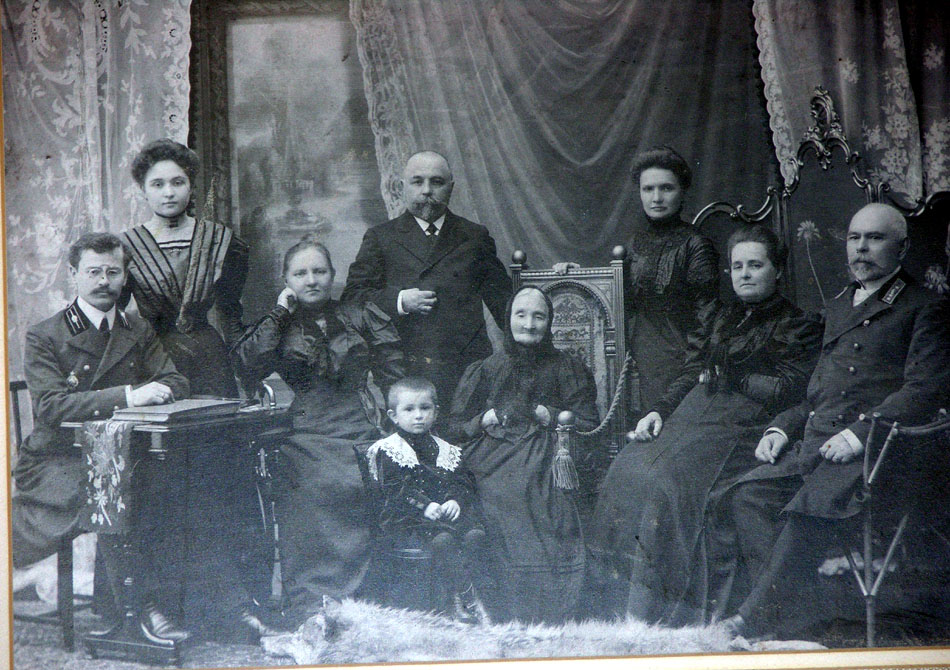Tiếng Anh 11 Unit 1. Generation Từ vựngTổng hợp từ vựng Unit 1. Generation Tiếng Anh 11 Friends Global GÓP Ý HAY - NHẬN NGAY QUÀ CHẤT Gửi góp ý cho HocTot.Nam.Name.Vn và nhận về những phần quà hấp dẫn 1A. VOCABULARY 1. (n) câu đố Can you answer this famous riddle from Sophocles’ play Oedipus the King? (Bạn có thể trả lời câu đố nổi tiếng này từ vở kịch Oedipus the King của Sophocles không?) 2. (n) người trưởng thành An adult under English law is someone over 18 years old. (Người lớn theo luật của Anh là người trên 18 tuổi.)  3. (n) người sống trên 100 tuổi In centenarians, inflammaging is always accompanied by anti-inflammaging and their balance is likely to be crucial to attain healthy aging and longevity. (Ở những người sống trăm tuổi, tình trạng viêm luôn đi kèm với khả năng chống viêm và sự cân bằng của chúng có thể rất quan trọng để đạt được tuổi già và tuổi thọ khỏe mạnh.) 4. (n) trẻ sơ sinh Infants under 2 years of age must travel on an adult's lap. (Trẻ sơ sinh dưới 2 tuổi phải đi trong lòng người lớn.)  5. (n) trẻ mới biết đi Are these toys suitable for toddlers? (Những đồ chơi này có phù hợp với trẻ mới biết đi không?)  6. (adj) trung niên They're a middle-aged couple, with grown-up children. (Họ là một cặp vợ chồng trung niên, có con cái đã lớn.)  7. (phr v) nuôi dưỡng Despite the family's problems, the children were well brought up. (Bất chấp những vấn đề của gia đình, những đứa trẻ đã được nuôi dưỡng tốt.) 8. (v) di cư Thousands of Britons emigrate every year. (Hàng ngàn người Anh di cư mỗi năm.) 9. (idiom) phải lòng ai đó He fell in love with a young German student. (Anh đem lòng yêu một cô sinh viên trẻ người Đức.) 10. (n) li dị The last The last I heard they were getting a divorce.I heard they were getting a divorce. (Lần cuối cùng tôi nghe nói họ sắp ly hôn.) 11. (v) đính hôn I have engaged a secretary to deal with all my paperwork. (Tôi đã thuê một thư ký để giải quyết tất cả các thủ tục giấy tờ của tôi.) 12. (phr v) lớn lên They're a middle-aged couple, with grown-up children. (Họ là một cặp vợ chồng trung niên, có con cái đã lớn.) 13. (v) thừa kế Who will inherit the house when he dies? (Ai sẽ thừa kế ngôi nhà khi anh ta chết?)  14. (phr v) qua đời She's terribly upset because her father passed away last week. (Cô ấy rất buồn vì cha cô ấy đã qua đời vào tuần trước.) 15. (v) nghỉ hưu Since retiring from the company, she has done voluntary work for a charity. (Kể từ khi nghỉ việc ở công ty, cô ấy đã làm công việc tình nguyện cho một tổ chức từ thiện.)  16. (phr v) ổn định She quickly settled down in her new house/job/school. (Cô ấy nhanh chóng ổn định cuộc sống ở ngôi nhà/công việc/trường học mới của mình.) 17. (phr v) chia tay She split up with her boyfriend last week. (Cô chia tay với bạn trai tuần trước.) 18. (n) tổ tiên There were portraits of his ancestors on the walls of the room. (Có những bức chân dung của tổ tiên anh trên tường của căn phòng.)  19. (n) thế hệ The younger generation smokes less than their parents did. (Thế hệ trẻ hút thuốc ít hơn cha mẹ của họ.) 20. (n) trang trại Washington used the farmhouse as his headquarters before and after the battle. (Washington đã sử dụng trang trại làm trụ sở của mình trước và sau trận chiến.)  1B. GRAMMAR 21. (n) tuổi thọ Jeanne Calment, the person with the longest lifespan ever, was born in 1875, in Arles, France. (Jeanne Calment, người có tuổi thọ cao nhất từ trước đến nay, sinh năm 1875, tại Arles, Pháp.)  22. (n) thiếu niên Her parents ran a shop in the town and she worked there when she was a teenager. (Cha mẹ anh ấy điều hành một cửa hàng tạp hóa trong thị trấn và cô ấy làm việc ở đó khi còn là một thiếu niên.)  23. (adj): xấu xí She thought he was “dirty, ugly and badly dressed”. ( Cô cho rằng anh ta )  24.  25. (adj) giàu có Fernand was very wealthy so Jeanne never needed to work. (Fernand rất giàu có nên Jeanne không bao giờ phải đi làm.) 26. (n) nguyên lý làm cơ sản, nền tảng The French have their own theories, noting that she ate more than two pounds of chocolate a week and rode a bicycle until she was 100! (Người Pháp có lý thuyết riêng của họ, không có chuyện bà ấy ăn hơn 2 pound sôcôla mỗi tuần và đạp xe cho đến khi 100 tuổi!) 27. (phr v) kết hôn In 1989, my parents met, fell in love and got married. (Năm 1989, bố mẹ tôi gặp nhau, yêu nhau và kết hôn.)  28. (phr v) nhìn lên I’m always looking up to the sky! (Tôi luôn nhìn lên bầu trời!) 29. (adj) bưu điện You can pay by cheque or postal order. (Bạn có thể thanh toán bằng séc hoặc đặt hàng qua bưu điện.) 1C. LISTENING 30. (n) cãi vã Do you think the app would increase or decrease the number of arguments in your family? (Bạn có nghĩ rằng ứng dụng sẽ làm tăng hoặc giảm số lần cãi vã trong gia đình bạn không?)  31. (v) biến mất At evening meal fot all the family was once part of every day life in British homes, but this tradition has almost disappear. (Bữa tối dành cho cả gia đình đã từng là một phần của cuộc sống hàng ngày trong các gia đình ở Anh, nhưng truyền thống này đã gần như biến mất.) 32. (adj) cay đắng I feel very bitter about my childhood and all that I went through. (Tôi cảm thấy rất cay đắng về tuổi thơ của mình và tất cả những gì tôi đã trải qua.) 33. (adj) hung hăng The stereotype is that men tend to be more aggressive than women. (Định kiến cho rằng đàn ông có xu hướng hung hăng hơn phụ nữ.) 34. (adj) kiêu ngạo I found him arrogant and rude. (Tôi thấy anh ta kiêu ngạo và thô lỗ.) 35. complimentary /ˌkɒm.plɪˈmen.tər.i/ (adj) khen ngợi The reviews of his latest film have been highly complimentary. (Các bài đánh giá về bộ phim mới nhất của anh ấy rất được khen ngợi.) 36. enthusiastic /ɪnˌθjuːziˈæstɪk/ (adj) hào hứng You don't seem very enthusiastic about the party - don't you want to go tonight? (Bạn có vẻ không hào hứng lắm với bữa tiệc - bạn không muốn đi tối nay sao?) 37. (adj) biết ơn If you could get that report finished by Thursday, I'd be very grateful. (Nếu bạn có thể hoàn thành bản báo cáo đó trước thứ Năm, tôi sẽ rất biết ơn.) 38. 39. (adj) hoài niệm We'll take a nostalgic look at the musical hits of the 60s. (Chúng ta sẽ có một cái nhìn hoài niệm về những bản hit âm nhạc của thập niên 60.) 40. 41. (adj) khẩn cấp He's got to sign that paper - will you tell him it's urgent? (Anh ấy phải ký vào tờ giấy đó - bạn sẽ nói với anh ấy rằng nó khẩn cấp chứ) 42. (adj) buộc tội Now keep calm everyone, the police are on their way. (Bây giờ mọi người hãy bình tĩnh, cảnh sát đang trên đường đến.) 43. (adj):buộc tội Don't worry, I am not accusing you. (Đừng lo, ta không buộc tội ngươi. ) 44. optimistic /ˌɒptɪˈmɪstɪk/(adj) (adj) lạc quan She is optimistic about her chances of winning a gold medal. (Cô rất lạc quan về cơ hội giành huy chương vàng.) 45. pessimistic /ˌpɛsɪˈmɪstɪk/ (adj) (adj) bi quan The tone of the meeting was very pessimistic. (Giọng điệu của cuộc họp rất bi quan.) 46. (adj) nghiện I'm addicted to (= I very often eat) chocolate. (Tôi nghiện (= tôi rất thường xuyên ăn) sô cô la.) 47. (n) máy tính bảng The company has launched its latest 10-inch tablet. (Công ty đã ra mắt máy tính bảng 10 inch mới nhất của mình.) 1D. GRAMMAR 48. (adj) lạ These glasses feel strange, but I’ll get used to them. (Những chiếc kính này cảm thấy lạ, nhưng tôi sẽ quen với chúng.) 49. (adj) nghịch ngợm Now that's naughty - don't throw food on the floor! (Bây giờ điều đó thật nghịch ngợm - đừng ném thức ăn xuống sàn!) 50. (phr v) ngừng làm việc gì khi lớn lên Lucas says he wants to join the army when he turns 18, but I hope he'll grow out of the idea. (Lucas nói rằng anh ấy muốn gia nhập quân đội khi anh ấy 18 tuổi, nhưng tôi hy vọng anh ấy sẽ từ bỏ ý định đó.) 1E. WORD SKILLS 51. (v) bỏ rơi The mother dies and the father abandons the baby, who is called Benjamin. (Người mẹ qua đời và người cha bỏ rơi đứa bé tên là Bên-gia-min.)  52. (n) cư dân The local residents were angry at the lack of parking spaces. (Cư dân địa phương tức giận vì thiếu chỗ đậu xe.) 53. (phr v) thân thiết với At the age of twelve, he meets a young girl called Daisy and gets on with her very well despite having the appearance of an old man, but later they lose touch when Benjamin starts working a job on a boat. (Năm 12 tuổi, anh gặp một cô gái trẻ tên là Daisy và rất thân với cô ấy mặc dù có vẻ ngoài như một ông già, nhưng sau đó họ mất liên lạc khi Benjamin bắt đầu làm công việc trên một chiếc thuyền.) 54. (phr v) đúng The Curious Case of Benjamin Button certainly lives up to its title. (The Curious Case of Benjamin Button chắc chắn đúng với tiêu đề của nó.) 55. (phr v) bắt kịp Years later, catches up with Daisy again in Paris. (Nhiều năm sau, gặp lại Daisy ở Paris.) 56. go through with /ɡəʊ θruː wɪð/ (phr v) vượt qua They almost marry and settle down together, but they never go through with it. (Họ gần như kết hôn và ổn định cuộc sống cùng nhau, nhưng họ không bao giờ vượt qua được điều đó.) 57. (phr v) chịu đựng One reason is that Daisy could never put up with Benjamin’s strange condition. (Một lý do là Daisy không bao giờ có thể chịu đựng được tình trạng kỳ lạ của Benjamin.) 58. (phr v) hết sạch We've run out of sugar; I'm going to the shops for some. (Chúng tôi vừa hết sạch đường, tôi sẽ đến cửa hàng mua một ít.) 59. (phr v) bù đắp No amount of money can make up for the death of a child. (Không có số tiền nào có thể bù đắp cho cái chết của một đứa trẻ.) 60. (v) ngưỡng mộ Which famous people do you admire? (Bạn ngưỡng mộ những người nổi tiếng nào?) 61. (v) tha thứ What kind of behavior is the most difficult to tolerate? (Loại hành vi nào là khó dung thứ nhất?) 62. (phr v) thoát tội If I thought I could get away with it, I wouldn't pay my taxes at all. (Nếu tôi nghĩ rằng tôi có thể thoát tội, tôi sẽ không đóng thuế chút nào.) 1F. READING 63. (n) thanh thiếu niên Parents may find it difficult to understand their adolescent children, but it is a parent’s duty to communicate properly with them and avoid arguments. (Cha mẹ có thể thấy khó hiểu những đứa con đang tuổi vị thành niên của mình, nhưng cha mẹ có bổn phận phải giao tiếp đúng cách với chúng và tránh tranh cãi.) 64. (n) giá trị (điều đúng đắn/ quan trọng trong cuộc sống) Although teenagers develop new ideas, values and beliefs during adolescene, that is no excuse for bad behaviour. (Mặc dù thanh thiếu niên phát triển những ý tưởng, giá trị và niềm tin mới trong thời niên thiếu, nhưng đó không phải là lý do bào chữa cho hành vi xấu.) 65. (n) đi cùng You used to be most happy in the company of your parents. (Bạn đã từng hạnh phúc nhất khi ở bên cha mẹ mình.) 66. (adj) lý tưởng Above all, adolescents have strong opinions and are idealistic. (Trên tất cả, thanh thiếu niên có chính kiến mạnh mẽ và lý tưởng.) 67. (v) từ chối They may not say so, but they are probably feeling a sense of loss and may even feel rejected by you. (Có thể họ không nói ra, nhưng có lẽ họ đang cảm thấy mất mát và thậm chí có thể cảm thấy bị bạn từ chối.) 1G. SPEAKING 68. (v) đóng vai I can role-play a conversation about an exchange programme. (Tôi có thể đóng vai trò chuyện về một chương trình trao đổi.) 1H. WRITING 69. (phr v) tìm kiếm Also, could you please tell me why you are looking for a penfriend? (Ngoài ra, bạn có thể vui lòng cho tôi biết lý do tại sao bạn đang tìm kiếm một người bạn qua thư?) 70. (n) bạn qua thư Also, could you please tell me why you are looking for a penfriend? (Ngoài ra, bạn có thể vui lòng cho tôi biết lý do tại sao bạn đang tìm kiếm một người bạn qua thư?) 1I. CULTURE 71. (adj) dân tộc Most Vietnamese people belong to the Kinh ethnic group. (Phần lớn người Việt Nam thuộc dân tộc Kinh.) 72. multi-racial /ˌmʌl.tiˈreɪ.ʃəl/ (adj) đa chủng tộc Viet Nam is a multi-racial country with 54 ethnic groups. (Việt Nam là một quốc gia đa chủng tộc với 54 dân tộc anh em.) 73. (v) sống/ cư ngụ ở nơi nào More than 85% of Viet Nam’s population is the Kinh people who mainly inhabit the Red River Delta, the central coastal delta, the Mekong Delta and major cities. 74. social strata /ˈsəʊ.ʃəl ˈstrɑː.tə/ (n) các tầng lớp xã hội All ethnic groups in Viet Nam have achieved high levels of development in terms of culture and social strata. (Các dân tộc ở Việt Nam đều đạt trình độ phát triển cao về văn hóa và các tầng lớp xã hội.) 75. (n) xoong On arrival at the groom’s house, a bride in the Nung people pours a bottle of water into a saucepan, which symbolizes hard work and dedication to the family. (Khi đến nhà trai, cô dâu người Nùng rót một vò nước vào xoong, tượng trưng cho sự chăm chỉ, tận tụy với nhà trai.) 76. (n) tận tụy On arrival at the groom’s house, a bride in the Nung people pours a bottle of water into a saucepan, which symbolises hard work and dedication to the family. (Khi đến nhà trai, cô dâu người Nùng rót một vòi nước vào xoong, tượng trưng cho sự chăm chỉ, tận tụy với nhà trai.) 77. (v) miêu tả (theo cách nào đó) Meanwhile, a wedding ceremony of the Tay people is characterized by a lot of singing known as “hat quan lang”. (Trong khi đó, lễ cưới của người Tày lại có đặc trưng là hát quan lang nhiều.) 78. (adj) rải rác The rest of Viet Nam’s population, about 8 million, is scattered in mountainous areas around the country and makes up the other 53 ethnic groups. (Phần còn lại của dân số Việt Nam, khoảng 8 triệu người, sống rải rác ở các vùng núi trên khắp đất nước và tạo nên 53 dân tộc khác.)
|















